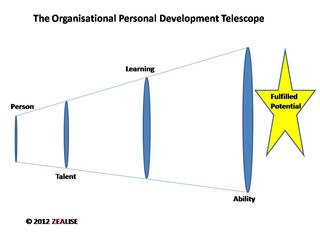Is the HR profession doing it again?
Whether or not you believe that bankers’ bonuses caused the near-collapse of the industry and the subsequent economic
crisis that just won’t go away, you might still argue that it is all the fault
of HR. After all, no matter what your view,the debate about excessive
executive remuneration would not be happening if it were not for the now
ubiquitous doctrine of performance related pay (PRP) or incentive remuneration
(IR.) And whether they conceived the
notion or were simply followers of the cult, HR cannot escape blame.
For the last three or four decades the PRP/IR net has spread ever-wider.
Initially designed to link senior management and executive remuneration to the
achievement of objectives, PRP/IR gave large bonuses the respectable "coat
of contingency" that made them more palatable. This, however, proved to be the
thin edge of the wedge. The trickle down phenomenon soon became a cascade and
PRP/IR spread through the ranks to the point that it became endemic, even in
the public sector.
And who can count the cost of that; not just financially, but in terms of
the corrosive effect it has had on the workplace? It is no wonder that employee
engagement levels have been declining in conjunction with the rise in PRP/IP, for
it comes with a narrower and more intense focus on measurement and performance
that stifles the human spirit. And this despite the evidence of people like
Harry Harlow, Edward Deci and Richard Ryan and numerous others, that incentives
only work for routine mechanical tasks and for more complex problems can
actually have a negative effect. In
the light of such research it is perhaps no wonder we have an economic crisis.
Of course you can make excuses for HR for this. PRP/IR does seem so logical.
But it was letting the genie out of the bottle. Once introduced it became a
monster that was too big and too daunting to put back in.
But you have to ask yourself if the profession is not in danger of making
another similar, potentially catastrophic mistake with talent management?
Talent management is rapidly becoming one of HR’s key strategic tools. And –
just like PRP/IR it sounds wonderfully plausible, proper and praiseworthy. But
the term is dangerous. You don’t hire talent – you hire people. You don’t
manage talent – you manage people. You don’t grow talent – you develop skills (albeit
from a source of talent.) So while it sounds good to talk about “identifying,
growing and retaining talent” you are already in danger of losing the plot.
Your objective is to help people to find, develop and optimise
their talent and so fulfil their potential.
Think of it as a telescope, with a series of lenses. Each lens helps to make
the object (objective) nearer. And when individual and organisation share the
same objective you both have a greater chance of success. So the more fulfilled
people you have in your organisation the more successful your organisation will
be. But it all starts with the person.
If you understand, remember and practice that you won’t fall into the talent
trap. You will remember and you won’t, will you?

